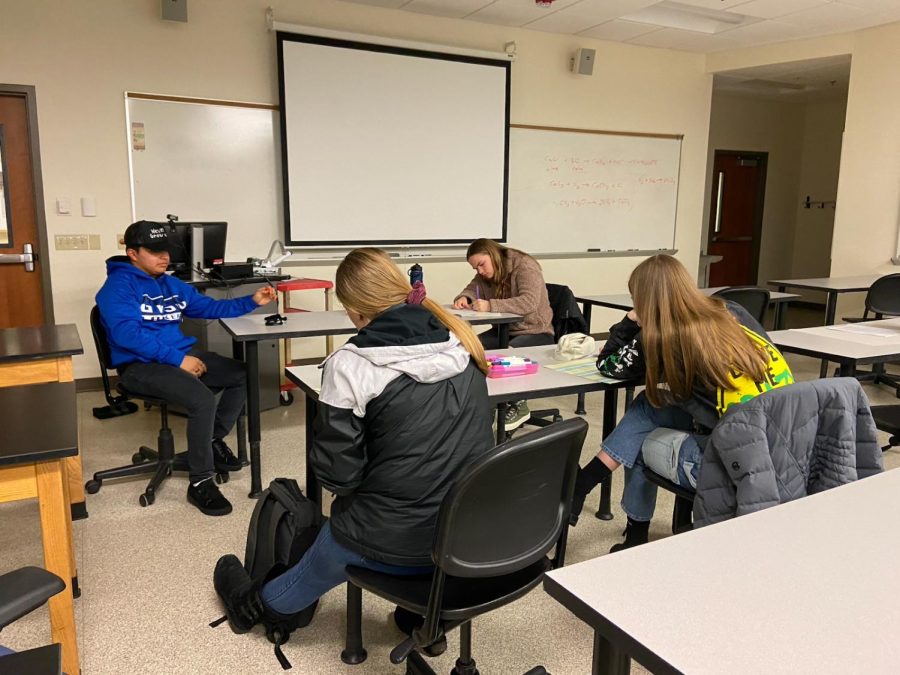Students with Chronic Pain/Illness hosts first meeting of this semester
Feb 6, 2023
Students with Chronic Pain/Illness hosted its first meeting of the winter semester at the Niemeyer Honors College. Meeting monthly for an hour, members gather to discuss the hardships of experiencing personally, or knowing someone with, a chronic illness or pain condition.
The organization’s main objective is to support its members during difficult times. Jenna Cronan, host of the club’s first meeting, said she wants people to feel understood and welcomed when dealing with problems that often feel isolating – especially being away from home.
“I wanted to start something because it’s so hard being a young person with any type of chronic condition because I just think people don’t get it, and they think that if you look fine, then you are fine,” Cronan said. “I think it can be really lonely to deal with something internally and not have it visible from the outside.”
Cronan said juggling school and her health is hard, and she thought it would be nice if members could all relate to and support one another.
During the meeting, members were encouraged to write down and share their general stories of chronic pain, why they wanted to join the organization and what they hope to get out of future meetings.
Cronan shared her story first and said she suffers from a poorly-healed back injury she dealt with in high school that continues to worsen.
“I was very involved in the sport that I did, and going to school senior year, I couldn’t even be in school for more than a month because I couldn’t sit for more than 15 minutes at a time,” Cronan said.
She said her friends didn’t understand or reach out to her as much as she expected them to.
“That was probably the hardest part for me,” Cronan said.
Another member said she was born with cerebellar tonsillar ectopia, which has worsened with age. A third member then explained her condition, known as Postural orthostatic tachycardia syndrome (POTS), which she was diagnosed with about a year ago.
The conversation then shifted to how living with chronic pain can impact academics, and Cronan brought up her frustrations when advisor dismissed her pain.
“I was trying to write an essay for an application, and she told me not to use my pain as an excuse,” Cronan said. “So many people think that you have to look a certain way to have issues, and that’s really frustrating.”
One member said she sometimes has to miss school due to her condition but is still subjected to attendance policies for some of her classes. Although she has a disability form from Disability Support Resources (DSR), she was told the university can’t force professors to follow disability forms. Cronan had a similar experience with DSR.
“They said they can help me if I need accommodations for test taking or if I need a van, but they can’t change an individual professor’s policy on attendance or homework,” Cronan said.
DSR’s mission is to “provide support resources and accommodations that enhance the environment for persons with disabilities and to help educate the university community on disability issues.”
Cronan ended the meeting with an important message for people who know someone with chronic pain.
“People say it all the time, ‘You never know what someone is going through,’ but especially with this stuff, I wish people were more understanding,” Cronan said.


























